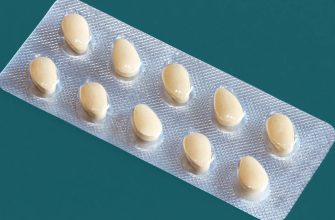Wondering what you *really* need to know about Viagra? Let’s get straight to the point. This medication, primarily known for treating erectile dysfunction (ED), works by increasing blood flow to the penis, making it easier to achieve and maintain an erection. You’ll usually take it about an hour before sexual activity, and it’s vital to remember it only works when you’re sexually stimulated. No stimulation, no effect!
Now, before you rush out to get it, be aware of potential side effects. Headaches, facial flushing, and nasal congestion are relatively common. However, more serious side effects, like sudden vision changes or hearing loss, are rare, but require immediate medical attention. Don’t mix Viagra with nitrates, often prescribed for chest pain, as this can cause a dangerous drop in blood pressure. It’s a conversation you must have with your doctor.
Want more specifics? Dosage varies depending on individual needs and medical history, generally ranging from 25mg to 100mg. Your doctor will determine the right amount. Also, food can impact how quickly Viagra works. A high-fat meal might delay its absorption. Always follow your doctor’s instructions and never exceed the prescribed dose.
Viagra: A WebMD Informed Guide
Consult your doctor immediately if you experience sudden vision loss after taking Viagra. Although rare, this can indicate a serious condition called non-arteritic anterior ischemic optic neuropathy (NAION).
Viagra primarily treats erectile dysfunction by increasing blood flow to the penis. It works best when taken about one hour before sexual activity. The effects usually last for around four hours.
Understand the possible side effects. Headache, flushing, and nasal congestion are common. Less common but serious side effects include priapism (a prolonged erection lasting more than four hours) and sudden hearing loss. Contact emergency medical services immediately if these occur.
Be aware of potential drug interactions. Inform your doctor about all medications you are taking, especially nitrates (often used for chest pain) and alpha-blockers (used for prostate problems or high blood pressure). Combining these with Viagra can cause a dangerous drop in blood pressure.
Check the source of your Viagra. Only obtain it from licensed pharmacies. Counterfeit Viagra can contain harmful ingredients and pose significant health risks. Look for verification programs like Verified Internet Pharmacy Practice Sites (VIPPS).
Consider lifestyle factors alongside medication. Weight management, regular exercise, and smoking cessation can positively impact erectile function and overall health. These lifestyle changes can improve Viagra’s treatment potential.
Adjust your dosage with your doctor’s guidance. Do not increase your dosage independently. Your doctor can determine the safest and most effective dose based on your individual needs and health status.
Remember, Viagra is a treatment, not a cure. It helps manage erectile dysfunction but does not address the underlying causes. Discuss potential causes and long-term management strategies with your physician.
WebMD provides extensive information on Viagra, including side effects, interactions, and dosage. Use WebMD as a resource to better understand the medication, but it is not a substitute for professional medical advice. Always consult with your doctor before using Viagra.
Viagra’s Purpose: Treating Erectile Dysfunction
Viagra assists men experiencing erectile dysfunction (ED) by boosting blood flow to the penis during sexual stimulation. Take it about one hour before sexual activity for optimal results. It doesn’t automatically create an erection; you’ll still need sexual arousal.
The active ingredient, sildenafil, inhibits PDE5, an enzyme that restricts blood flow. By blocking PDE5, sildenafil allows more blood to flow into the penis, making it easier to achieve and maintain an erection. Think of it as removing a bottleneck in the blood vessels leading to the penis.
Consider your lifestyle; factors like smoking, excessive alcohol consumption, and obesity can worsen ED and potentially reduce Viagra’s positive impact. Making healthy changes can complement the medication’s assistance.
Be aware of potential side effects. Headaches, flushing, nasal congestion, and visual changes are common but typically mild. If you experience chest pain, dizziness, or a prolonged erection (more than four hours), seek immediate medical assistance. Discuss any pre-existing medical conditions and other medications you’re taking with your doctor before using Viagra. Avoid taking it with nitrates, as this combination can cause a dangerous drop in blood pressure.
WebMD’s Dosage Guidelines for Viagra
WebMD suggests starting with 50 mg of Viagra about one hour before sexual activity. This dose works for most men. However, your doctor might recommend a different starting dose based on your individual health conditions and other medications you take.
If 50 mg doesn’t produce the desired effect, your doctor could increase your dose to 100 mg. Don’t increase your dose yourself; always follow medical advice. Conversely, if you experience side effects at 50 mg, your doctor may suggest lowering the dose to 25 mg.
WebMD clearly states that you should not take Viagra more than once per day. Exceeding this limit can increase the risk of side effects. Also, avoid taking Viagra with high-fat meals, which can delay its absorption and reduce its effectiveness.
For men over 65, WebMD recommends a lower starting dose of 25 mg, due to potential increased sensitivity to the drug’s effects. People with kidney or liver problems may also need to begin with a lower dose. Always consult with a healthcare provider to determine the right dosage for your specific circumstances.
Potential Side Effects According to WebMD
WebMD highlights several possible side effects you should be aware of before taking Viagra. Experience headaches – a common issue often resolving on its own. Consider over-the-counter pain relief if it persists.
Also, vision changes, such as blurred vision or a bluish tinge to your sight, might occur. Discontinue use and consult your doctor immediately if you experience sudden vision loss.
Nasal congestion is another frequently reported side effect. Decongestants might help, but discuss their safety with your pharmacist, especially if you have other health issues.
Dizziness can happen, so avoid activities requiring alertness, like driving, until you know how Viagra affects you. Get up slowly from a sitting or lying position to minimize lightheadedness.
Less common but more serious side effects include prolonged erections (priapism), lasting more than four hours. Seek immediate medical attention; untreated priapism can damage your penis. Contact emergency services right away if you experience chest pain, as Viagra can interact with certain heart medications.
Be alert for allergic reactions, characterized by hives, difficulty breathing, or swelling of your face, lips, tongue, or throat. These are medical emergencies requiring immediate intervention. Consult your doctor about any pre-existing conditions or medications you’re currently taking to mitigate potential risks.
Viagra Interactions: WebMD’s Safety Advice
Avoid taking Viagra if you also use nitrate medications for chest pain, as this combination can cause a sudden and serious drop in blood pressure. WebMD clearly warns against using Viagra with nitrates like nitroglycerin and isosorbide.
- Tell your doctor about all medications you use, including over-the-counter drugs and herbal products. This helps them identify potential Viagra interactions.
- Be cautious about combining Viagra with alpha-blockers, often prescribed for prostate problems or high blood pressure. This can also lead to low blood pressure, resulting in dizziness or fainting. Your doctor might adjust your Viagra dose if you are taking an alpha-blocker.
- Grapefruit and grapefruit juice can increase the level of Viagra in your bloodstream, potentially leading to more side effects. WebMD suggests limiting grapefruit consumption while taking Viagra.
- Certain antifungal medications, such as ketoconazole and itraconazole, can also increase Viagra levels in your body. Discuss this with your doctor, as they may need to adjust your Viagra dose.
WebMD stresses the importance of providing a complete medical history to your healthcare provider. Specifically, mention any heart conditions, kidney or liver problems, a history of stroke, or eye problems like retinitis pigmentosa. These conditions could affect how Viagra works or increase your risk of side effects.
- Always follow your doctor’s instructions regarding Viagra dosage and timing. Do not take more than the prescribed dose.
- If you experience chest pain, dizziness, or nausea during sexual activity after taking Viagra, stop immediately and seek medical help.
- Report any persistent or bothersome side effects to your doctor. Common side effects include headache, flushing, and nasal congestion.
Remember, Viagra is not for everyone. WebMD advises against using it if you are a woman or a child. It is also not intended for individuals who do not have erectile dysfunction. Talk to your doctor to determine if Viagra is right for you and to understand the risks and benefits.




